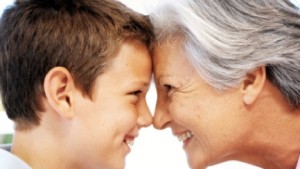 Our wellness can be affected by both our genes and our lifestyle, which means for lots of conditions we could help ourselves a lot by adapting the way we live. Brittle bones are common across the world with millions of us feeling the negative effects of osteoporosis on our wellbeing. Now researchers are doing their best to uncover genetic links to the condition so we may get even more therapies to treat it.
Our wellness can be affected by both our genes and our lifestyle, which means for lots of conditions we could help ourselves a lot by adapting the way we live. Brittle bones are common across the world with millions of us feeling the negative effects of osteoporosis on our wellbeing. Now researchers are doing their best to uncover genetic links to the condition so we may get even more therapies to treat it.
Brittle bone cures
At the moment there is no real cure for brittle bones, but we can prevent ourselves getting it. The problem with osteoporosis is we may not know that our lifestyles contain risk factors for the condition. If we’ve reached the menopause, don’t exercise regularly, have poor nutrition or smoke/drink excessively then we are putting our bone wellness at risk. Most of these factors we can control, such as doing more exercise and eating Vitamin D and calcium. But the menopause, and other health problems, related to our glands and digestion can also increase our chances of getting brittle bones. Cancer treatments and corticosteroids have also been associated with the syndrome, so we ought to seek a medical opinion about our bone health if we’ve received any of these.
Power of the genes
Another risk factor for the condition is if someone in our family has/had osteoporosis or broken bones following minor slips and trips – as this indicates the osteoporosis was undiagnosed. To further investigate this genetic link, researchers from Hebrew SeniorLife are comparing a medical database. The data features information on the genetics of many people going back over 60 years. The information contains details on lots of different conditions, such as osteoporosis, heart disease and cancer. Researchers aim to look for markers of brittle bones so we can clearly identify genes that contribute to osteoporosis so medical experts can then start creating remedies for the syndrome. Until then we can rely on bone building medications and adapt our lifestyles so our bones are protected from excessive cell loss.




